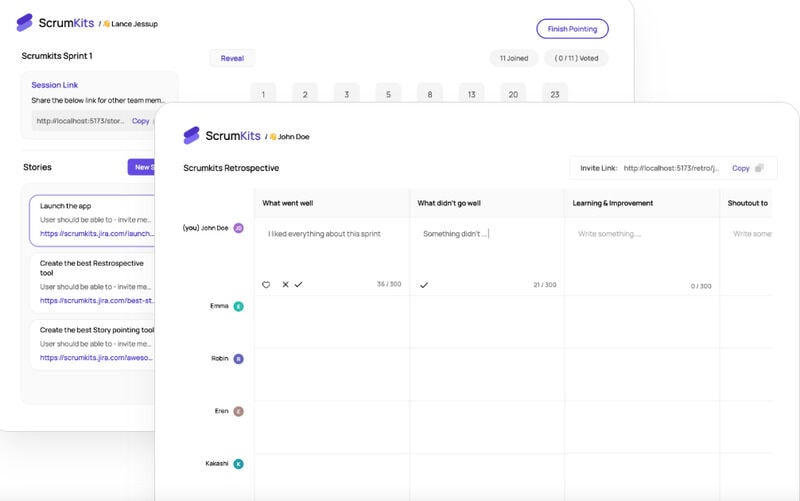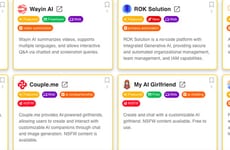
ScrumKits Simplifies Sprint Planning and Retrospectives With Collaboration
Ellen Smith — January 29, 2025 — Business
References: scrumkits
ScrumKits is a platform designed to streamline sprint planning and retrospective sessions for agile teams. It facilitates story pointing and feedback collection, reducing the need for time-consuming follow-ups with individual team members. Users can create a session, add stories, and share a link, allowing team members to contribute asynchronously before joining a discussion.
The platform supports real-time collaboration, live voting, and instant feedback, ensuring efficient decision-making. Additionally, ScrumKits provides analytics and reports to help teams track progress and improve future sprints. With an emphasis on user experience, it simplifies agile workflows while maintaining security and reliability. By integrating engagement-driven features, ScrumKits enhances productivity and makes the agile process more interactive, catering to teams seeking a more efficient approach to sprint planning and retrospectives.
Image Credit: ScrumKits
The platform supports real-time collaboration, live voting, and instant feedback, ensuring efficient decision-making. Additionally, ScrumKits provides analytics and reports to help teams track progress and improve future sprints. With an emphasis on user experience, it simplifies agile workflows while maintaining security and reliability. By integrating engagement-driven features, ScrumKits enhances productivity and makes the agile process more interactive, catering to teams seeking a more efficient approach to sprint planning and retrospectives.
Image Credit: ScrumKits
Trend Themes
1. Asynchronous Collaboration Tools - The rise of tools like ScrumKits illustrates a shift towards asynchronous collaboration, allowing team members to contribute on their own schedule and enhancing productivity.
2. Real-time Collaboration Enhancements - Platforms that integrate features for live voting and instant feedback are emerging, fostering dynamic discussions and more informed decision-making in agile workflows.
3. Data-driven Agile Workflows - Increasing reliance on analytics and reporting tools in agile environments is enabling teams to harness data insights to refine sprint efficiency and outcomes.
Industry Implications
1. Agile Project Management Software - Innovations in this industry focus on improving the scrum experience through advanced planning and feedback mechanisms, leading to streamlined project execution.
2. Collaboration and Communication Platforms - These platforms are increasingly incorporating features that support both real-time and asynchronous engagement, meeting the needs of geographically dispersed teams.
3. Data Analytics for Team Performance - The development of analytics capabilities that provide actionable insights into team performance and progress marks a transformative shift in performance management.
2.9
Score
Popularity
Activity
Freshness























